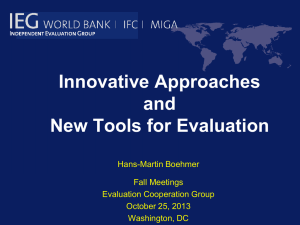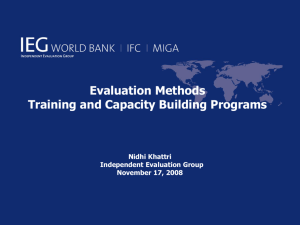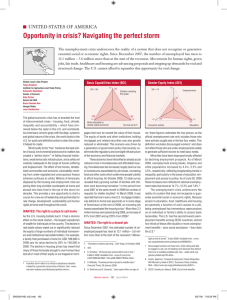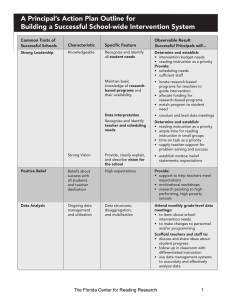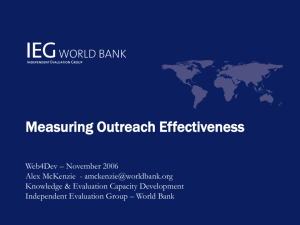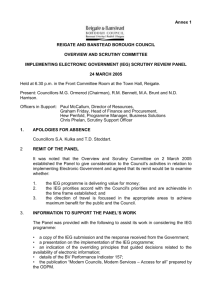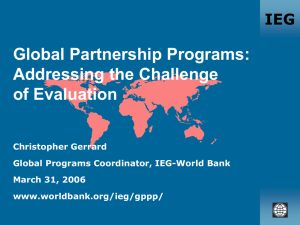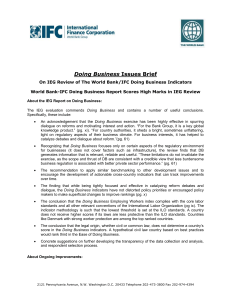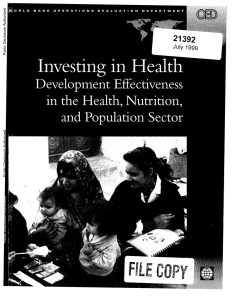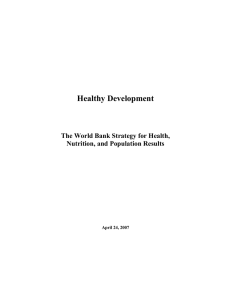World Report
advertisement
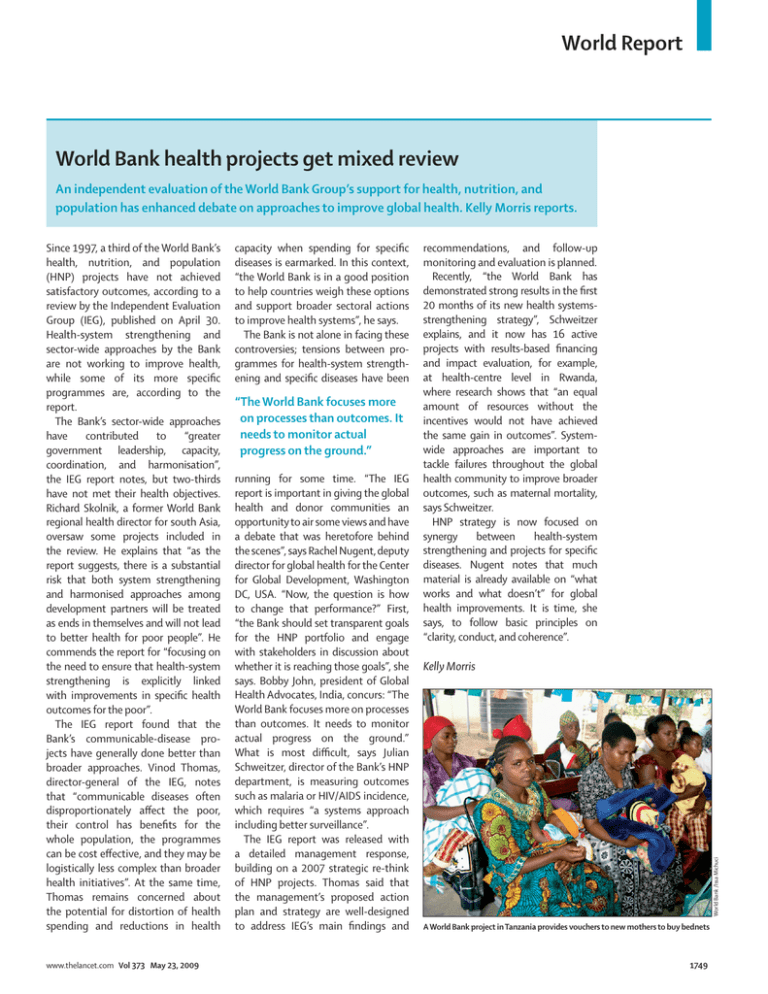
World Report World Bank health projects get mixed review An independent evaluation of the World Bank Group’s support for health, nutrition, and population has enhanced debate on approaches to improve global health. Kelly Morris reports. www.thelancet.com Vol 373 May 23, 2009 capacity when spending for specific diseases is earmarked. In this context, “the World Bank is in a good position to help countries weigh these options and support broader sectoral actions to improve health systems”, he says. The Bank is not alone in facing these controversies; tensions between programmes for health-system strengthening and specific diseases have been “The World Bank focuses more on processes than outcomes. It needs to monitor actual progress on the ground.” running for some time. “The IEG report is important in giving the global health and donor communities an opportunity to air some views and have a debate that was heretofore behind the scenes”, says Rachel Nugent, deputy director for global health for the Center for Global Development, Washington DC, USA. “Now, the question is how to change that performance?” First, “the Bank should set transparent goals for the HNP portfolio and engage with stakeholders in discussion about whether it is reaching those goals”, she says. Bobby John, president of Global Health Advocates, India, concurs: “The World Bank focuses more on processes than outcomes. It needs to monitor actual progress on the ground.” What is most difficult, says Julian Schweitzer, director of the Bank’s HNP department, is measuring outcomes such as malaria or HIV/AIDS incidence, which requires “a systems approach including better surveillance”. The IEG report was released with a detailed management response, building on a 2007 strategic re-think of HNP projects. Thomas said that the management’s proposed action plan and strategy are well-designed to address IEG’s main findings and recommendations, and follow-up monitoring and evaluation is planned. Recently, “the World Bank has demonstrated strong results in the first 20 months of its new health systemsstrengthening strategy”, Schweitzer explains, and it now has 16 active projects with results-based financing and impact evaluation, for example, at health-centre level in Rwanda, where research shows that “an equal amount of resources without the incentives would not have achieved the same gain in outcomes”. Systemwide approaches are important to tackle failures throughout the global health community to improve broader outcomes, such as maternal mortality, says Schweitzer. HNP strategy is now focused on synergy between health-system strengthening and projects for specific diseases. Nugent notes that much material is already available on “what works and what doesn’t” for global health improvements. It is time, she says, to follow basic principles on “clarity, conduct, and coherence”. Kelly Morris World Bank /Issa Michuci Since 1997, a third of the World Bank’s health, nutrition, and population (HNP) projects have not achieved satisfactory outcomes, according to a review by the Independent Evaluation Group (IEG), published on April 30. Health-system strengthening and sector-wide approaches by the Bank are not working to improve health, while some of its more specific programmes are, according to the report. The Bank’s sector-wide approaches have contributed to “greater government leadership, capacity, coordination, and harmonisation”, the IEG report notes, but two-thirds have not met their health objectives. Richard Skolnik, a former World Bank regional health director for south Asia, oversaw some projects included in the review. He explains that “as the report suggests, there is a substantial risk that both system strengthening and harmonised approaches among development partners will be treated as ends in themselves and will not lead to better health for poor people”. He commends the report for “focusing on the need to ensure that health-system strengthening is explicitly linked with improvements in specific health outcomes for the poor”. The IEG report found that the Bank’s communicable-disease projects have generally done better than broader approaches. Vinod Thomas, director-general of the IEG, notes that “communicable diseases often disproportionately affect the poor, their control has benefits for the whole population, the programmes can be cost effective, and they may be logistically less complex than broader health initiatives”. At the same time, Thomas remains concerned about the potential for distortion of health spending and reductions in health A World Bank project in Tanzania provides vouchers to new mothers to buy bednets 1749
